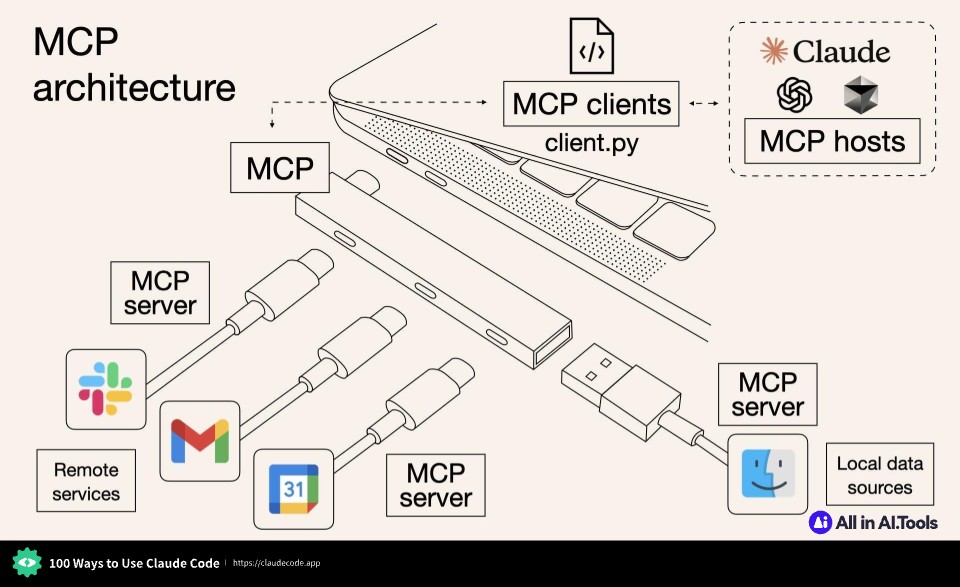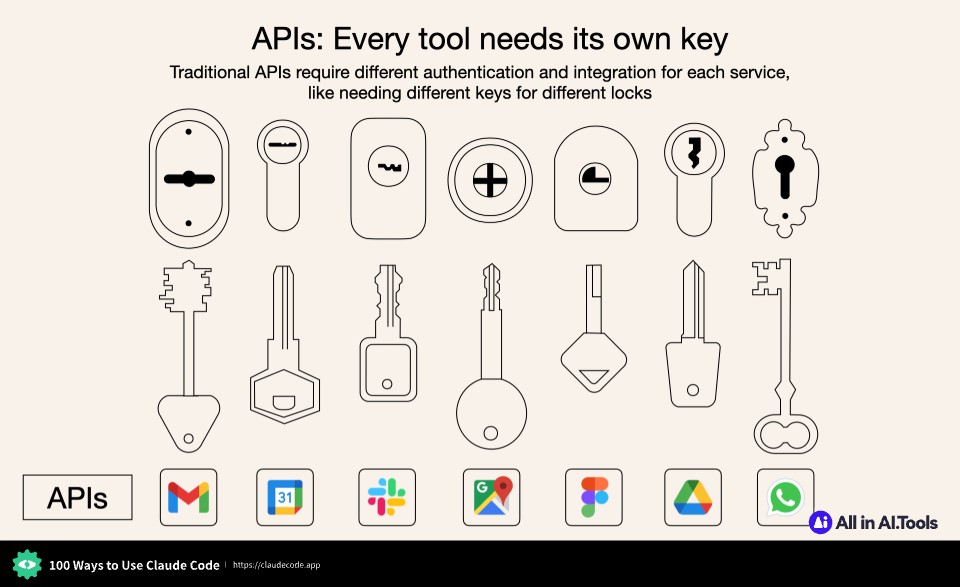Discover and integrate MCP servers to extend Claude's capabilities
This is a Model Context Protocol (MCP) server implemented in Go, providing a tool to analyze Go pprof performance profiles.
A Model Context Protocol server for integrating HackMD's note-taking platform with AI assistants.
AniList MCP server for accessing anime and manga data
Model Context Protocol (MCP) server that provides weather information from Malaysia Government's Open API
An MCP server to interact with Strava
🚀 Time MCP Server: Giving LLMs Time Awareness Capabilities
📦 Repomix is a powerful tool that packs your entire repository into a single, AI-friendly file. Perfect for when you need to feed your codebase to Large Language Models (LLMs) or other AI tools like Claude, ChatGPT, DeepSeek, Perplexity, Gemini, Gemma, Llama, Grok, and more.
A powerful MCP tool for parsing and manipulating MIDI files based on Tone.js. This library leverages the Model Context Protocol (MCP) to enable AI assistants to easily read, analyze, and modify MIDI files without dealing with the complexities of the MIDI file format.
BurpSuite MCP Server: A powerful Model Context Protocol (MCP) server implementation for BurpSuite, providing programmatic access to Burp's core functionalities.
MCP server for fetching web page content with recursive exploration capability
Luma AI Video + Audio + Image Generation and RunwayML Video Generation from Image and Text
NEXUS MCP- Simple MCP server for Claude Desktop
Collection of Google-native tools (e.g., Gmail, Calendar) for the MCP
An MCP server that connects to your React Native application debugger
The Opera Omnia MCP server provides programmatic access to the rich collection of JSON datasets from the Opera Omnia project. It enables developers, storytellers, and AI applications to easily access, combine, and generate creative content for games, interactive fiction, chatbots, and more.
Tools for seamless integration of different systems and services.
Cloud infrastructure and deployment management tools.
AI-powered tools for creative design workflows across 3D and 2D mediums.
AI-powered tools for product development, design review, and performance monitoring.
Tools for monitoring, analytics, and operational efficiency.


Explore Claude Cowork, Anthropic's groundbreaking AI agent built on Claude Code foundations. Discover how it enables file access, document creation, and task automation for everyone—not just developers. Learn how it integrates with MCP servers and extends Claude Code capabilities.
Explore the major [Claude code](https://claudecode.app) 2.1.1 update featuring 109 CLI improvements, automatic hot reload for skills, sub-agent execution, enhanced security, performance optimizations, and smarter prompt behavior. Learn about all the new features and improvements.
Master the art of prompting Claude with Anthropic official guide. Learn 10 proven strategies to 10x your Claude Opus and Sonnet 4.5 performance. Discover how better prompts lead to better results with practical examples and real-world applications.
Deep dive into sophisticated SSH workflows for Claude Code power users. Learn zero-friction authentication, session management, and advanced techniques that transform your vibe coding experience.
MCP (Model Context Protocol) is an open protocol that standardizes how applications provide context to LLMs. Think of MCP like a USB-C port for AI applications, providing a standardized way to connect AI models to different data sources and tools.
MCP Servers are lightweight programs that expose specific capabilities through the standardized Model Context Protocol. They act as bridges between LLMs like Claude and various data sources or services, allowing secure access to files, databases, APIs, and other resources.
MCP Servers follow a client-server architecture where a host application (like Claude Desktop) connects to multiple servers. Each server provides specific functionality through standardized endpoints and protocols, enabling Claude to access data and perform actions through the standardized protocol.
Yes, MCP Servers are designed with security in mind. They run locally with explicit configuration and permissions, require user approval for actions, and include built-in security features to prevent unauthorized access and ensure data privacy.